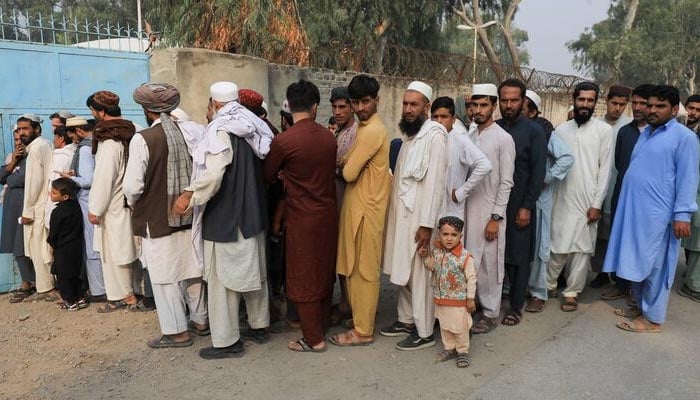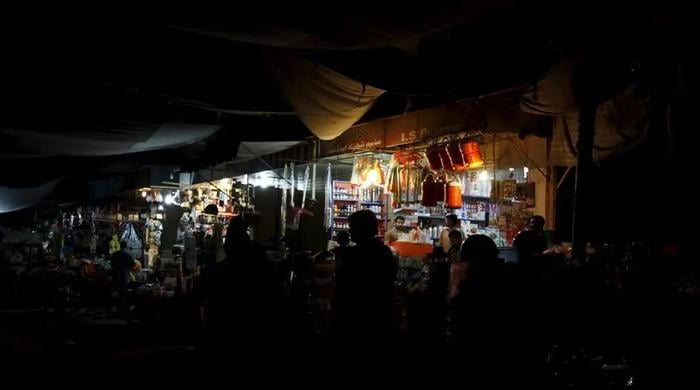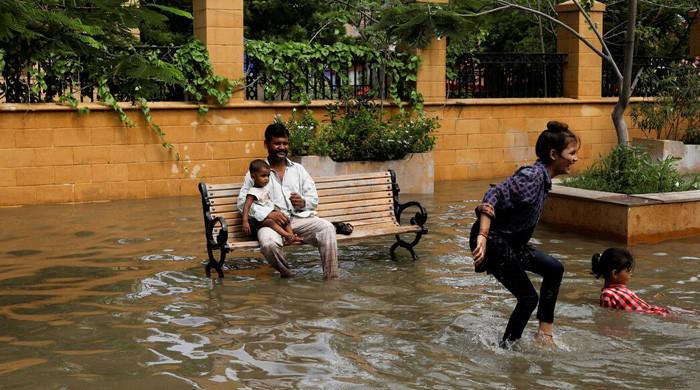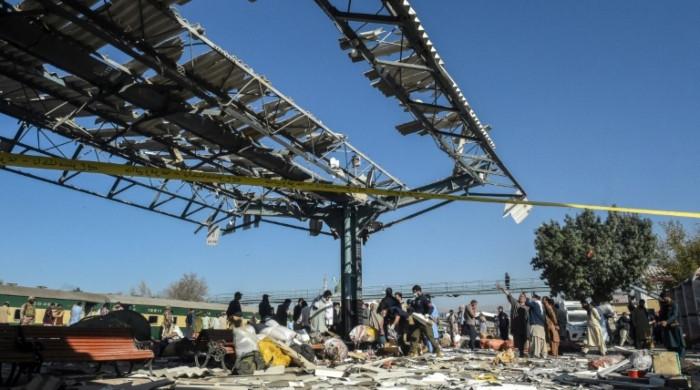Expulsion of Afghan refugees from Pakistan sparks human rights concern
Afghan students, in particular, bear significant burden, facing educational disruption, financial exploitation, and physical abuse
December 10, 2024

On October 3, 2023, a notification was issued to approximately four million Afghan refugees residing in Pakistan, mandating their expulsion by November 1, 2023. This abrupt directive, targeting 1.7 million undocumented Afghans, has sparked widespread concern and criticism due to the inhumane nature of the deportation process.
Pakistan's decision to expel these refugees comes in response to escalating terrorist activities attributed to the Tehreek-e-Taliban Pakistan (TTP), with then caretaker interior minister Sarfraz Bugti alleging Afghan nationals' involvement in 14 out of 24 recent terror incidents.
Despite the Afghan Taliban government's denial of any ties with the TTP, Pakistan persists with its stringent approach, recalling the influx of undocumented Afghan refugees since 1972. The forced return of educated girls and women to Afghanistan, where they face significant threats to their education and safety under Taliban rule, highlights the severe disruption to lives and education.
This mass deportation, viewed by many as a stark violation of international law, has resulted in over 600,000 refugees being sent back to a precarious existence. Reports from Human Rights Watch detail mass detentions and property seizures, further compounding the distress of those who have spent their lives in Pakistan and are now struggling to rebuild in an unfamiliar and hostile environment.
Local Afghan workers in Pakistan report facing numerous challenges, with the main issue being their tribal identity as members of the local Pathan tribes. These workers describe a litany of issues, including improper payment and rampant robbery, particularly among those employed in schools. The lack of a proper salary system and breaches of employment agreements exacerbate their hardships.
One worker emphasised that he sees himself as a victim of terrorism rather than a perpetrator, highlighting the pervasive stigma and discrimination they endure. A driver, born and raised in Pakistan, shared his daily struggles, noting that while licences are issued, jobs are not readily available, making life difficult.
A local from Mianwali added to this, sharing his deep concern about being deported despite being born in Pakistan. He stressed that he has no ties to Afghanistan and his entire life is in Pakistan. The fear of deportation and the uncertainty of what awaits in Afghanistan weigh heavily on him and many others like him, who see Pakistan as their only home.
The impact of the expulsion extends deeply into the lives of Afghan students in Pakistan. Interviews with Afghan students currently enrolled in local universities on scholarships reveal a grim reality. When the Taliban took over Afghanistan, all universities were closed, leaving students with no prospects for their education. The exodus of teachers, driven by the lack of future opportunities, and the termination of scholarships compounded the educational crisis.
Even before the closures, Afghan universities had begun exploiting students by demanding higher fees, exacerbating their financial burdens.
In Pakistan, the plight of these students has not eased. They face abuse from Afghan police during their commutes to university, suffering from robbery and physical assault. The inability to travel freely with the Proof of Registration (POR) card further restricts their already limited mobility. The stringent conditions and harsh treatment these students endure not only disrupt their academic pursuits but also tarnish Pakistan's reputation. The mistreatment of Afghan students reflects poorly on the country, highlighting a need for more humane and supportive policies for refugees seeking education and safety.
The forced deportation of Afghan refugees from Pakistan underscores a severe humanitarian crisis that demands urgent attention. The expulsion not only threatens the lives and futures of countless individuals but also jeopardises Pakistan's standing in the international community.
Afghan students, in particular, bear a significant burden, facing educational disruption, financial exploitation, and physical abuse. These young people, who sought refuge and the promise of education, now find themselves caught in a cycle of instability and fear.
It is imperative that Pakistan reevaluates its approach, ensuring the protection and support of Afghan refugees. By adopting more compassionate policies, Pakistan can uphold its humanitarian obligations, improve its global image, and contribute positively to regional stability. The plight of Afghan refugees calls for a collaborative international response, emphasising the need for solidarity, protection, and the promotion of human rights.
— The young writers are Aitchison College students












